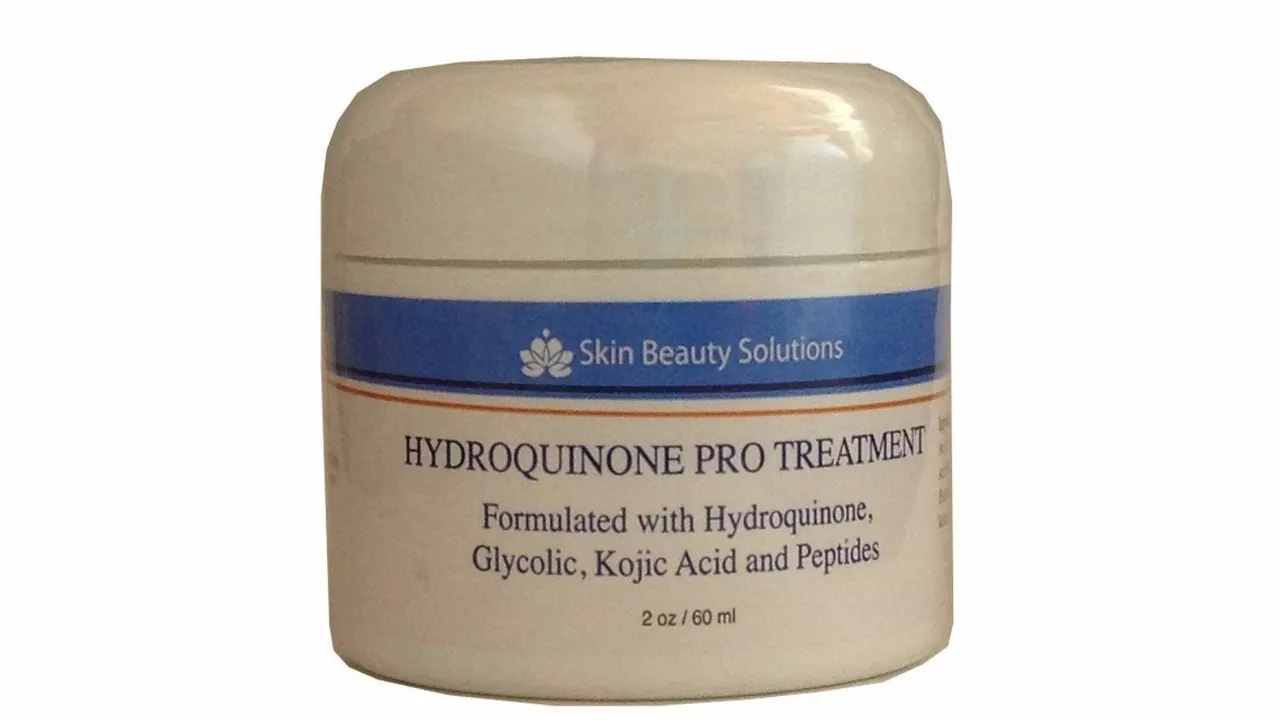Understanding Hydroquinone: The Basics
Before we dive into the specifics of using hydroquinone on larger areas of the body, it's essential to understand what hydroquinone is. Hydroquinone is a compound commonly used in skincare products due to its powerful skin-lightening properties. It helps to reduce the production of melanin, which is the pigment responsible for the color of your skin, hair, and eyes. This makes it a popular ingredient in creams and lotions designed to treat conditions like melasma, freckles, and other forms of hyperpigmentation.
Why Use Hydroquinone on Larger Skin Areas
Hydroquinone is usually recommended for use on smaller, targeted areas of the skin. However, there are instances where applying it to larger areas might be necessary. Perhaps you have extensive sun damage on your arms or age spots scattered across your legs. In these cases, using hydroquinone on a larger scale may be the best course of action to achieve a more uniform skin tone.
Risks and Side Effects of Hydroquinone
Like all skincare products, hydroquinone comes with potential risks and side effects. While it's generally safe for most people, some may experience mild skin irritation, redness, or dryness. In rare cases, hydroquinone may cause a skin condition known as ochronosis, which results in blue-black discoloration of the skin. It's crucial to be aware of these potential risks before deciding to use hydroquinone on larger areas of your skin.
How to Use Hydroquinone Safely
If you're considering using hydroquinone on larger areas of the skin, it's important to do so safely. Always start with a patch test to see how your skin reacts to the product. Apply only the recommended amount, and avoid using it on broken or irritated skin. It's also advisable to use hydroquinone in conjunction with a good sunscreen, as it can increase your skin's sensitivity to the sun.
Alternatives to Hydroquinone
If you're hesitant about using hydroquinone on larger areas of the skin, there are other alternatives available. Ingredients like kojic acid, arbutin, and azelaic acid also have skin-lightening properties and can be used to treat hyperpigmentation. These might be a safer option if you have sensitive skin or are prone to adverse reactions from skincare products.
Professional Treatments vs. At-Home Care
While there are numerous over-the-counter products containing hydroquinone, professional treatments administered by a dermatologist or skincare professional may be more effective, especially for larger areas of skin. These treatments often contain higher concentrations of hydroquinone and are applied in a controlled environment, minimizing the risk of side effects.
The Importance of a Skincare Routine
Using hydroquinone isn't a quick fix. It's most effective when used as part of a comprehensive skincare routine. This should include a good cleanser, moisturizer, and sunscreen, along with any other products recommended by your skincare professional. Regular exfoliation can also help to enhance the effects of hydroquinone by removing dead skin cells and promoting cell turnover.
Final Thoughts: Is Hydroquinone Right for You?
Ultimately, the decision to use hydroquinone on larger areas of the skin is a personal one. It's important to weigh the potential benefits against the possible risks and side effects. Consulting with a skincare professional can provide valuable insight and help you make an informed decision. Remember, achieving the skin of your dreams is a journey, not a destination.





Comments (20)